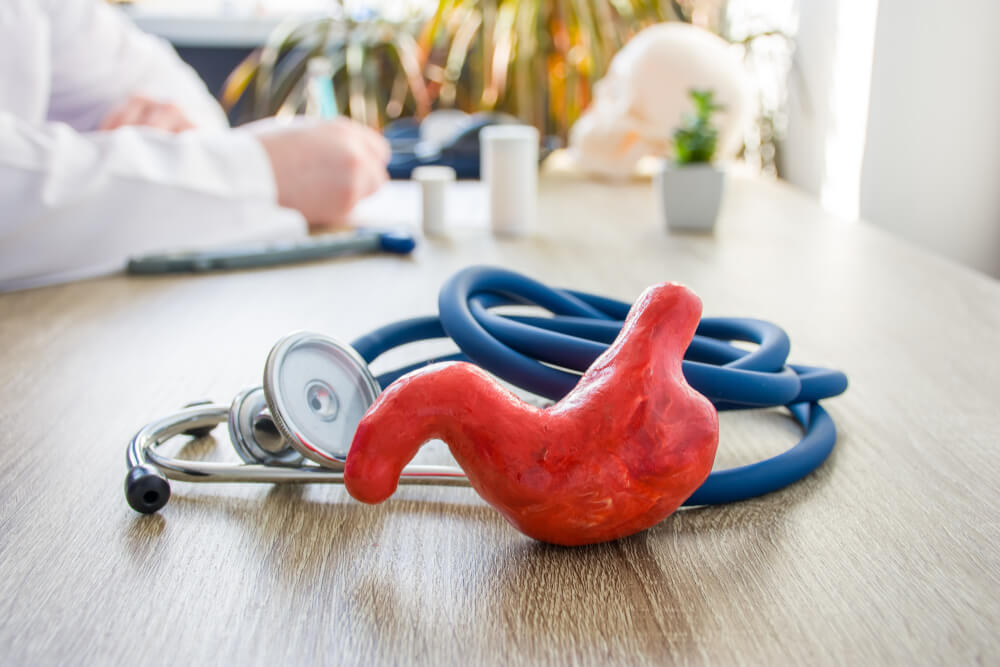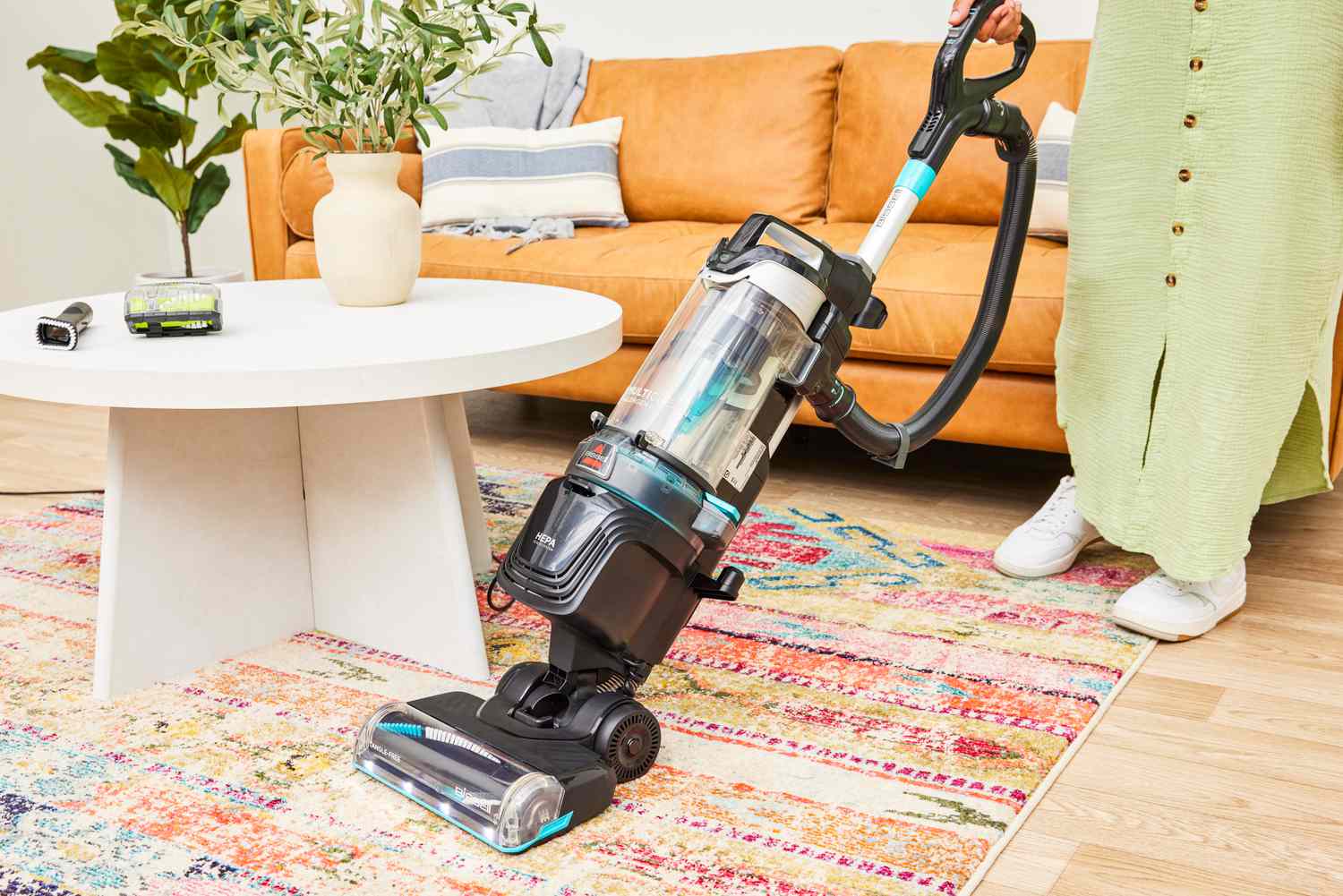In Health
Published 12/20/2025
Treatment Options for Ulcers that Actually Work
According to the CDC, an estimated 3 million American adults are currently living with a digestive disease, including ulcerative colitis (UC). This painful condition not only affects quality of life, but can also lead to more serious conditions like cancer.
What are Ulcers?
Ulcers are small sores that open up in the lining of the stomach, esophagus (throat), and the intestines. These sores can range in size and severity with some people never noticing them and others requiring surgery.
Complications
Ulcers are not usually dangerous, but they can be signs of much more dangerous conditions. Individuals with chronic ulcers might have:
- Ulcerative colitis
- Autoimmune diseases
- A higher risk for certain types of cancer
What Treatment Options are Available?
Thankfully, there are several treatment options available for ulcers and even more complicated conditions like ulcerative colitis. Options that many people discuss with their doctor include the following…
1. Antibiotics

The bacteria H. pylori is the culprit behind the vast majority of ulcer cases. In fact, up to 1 in 10 adults will have this type of ulcer at some point in their life. Some of these cases are so mild people never know they are infected while others can become extreme. Antibiotics are often prescribed to combat this bacteria.
Why Antibiotics Can Help
H. pylori is a bacterial infection and, as such, is easily treated with antibiotics. These antibiotics often come with mild side effects such as tiredness or diarrhea. Several types of antibiotics can be used to treat this infection, but amoxicillin is one of the most common. This treatment only works for the more mild, bacterial ulcers, though. It will not treat ulcerative colitis, which is a more complicated disorder.
Unlike its more mild cousin, ulcerative colitis needs to be treated with more potent medication…
2. Immunosuppressive Drugs

Ulcerative colitis is classified as an autoimmune disorder. This term means that this condition causes your immune system to falsely identify parts of your own body as if it was an infectious disease. Your body then sends its immune system to fight part of itself.
Unfortunately, these conditions can become very serious. Ulcerative colitis is no exception.
Why Immunosuppressive Drugs Can Help
Immunosuppressive drugs intentionally weaken the immune system, which serves to combat the worst effects of autoimmune diseases. While taking these drugs, your ulcerative colitis symptoms should dissipate. However, while taking immunosuppressive medicines, you should maintain contact with your doctor to monitor your condition and make sure you don’t get sick. If improperly managed, these drugs can cause your immune system to weaken too much, which can lead to serious infections.
Another medical treatment to consider for ulcers? Anti-inflammatory drugs…
3. Anti-inflammatory Drugs

Ulcers, whether they are caused by bacteria or ulcerative colitis, result in inflammation of the affected tissues. This inflammation goes on to cause discomfort and potentially make the ulcers worse.
Many doctors prescribe anti-inflammatory drugs to treat this issue.
Why Anti-inflammatory Drugs Can Help
These drugs lower the intensity of inflammation people experience with ulcers. This reduction helps to relieve many of the symptoms associated with ulcers, especially ulcerative colitis. This relief in turn mitigates the nausea, swelling, and discomfort associated with these diseases.
Anti-inflammatory drugs can be prescribed alongside a variety of other medications.
If medications don’t cure the ulcers or make them manageable, people can turn to surgical options…
4. Surgery

Surgery is an extreme measure for extreme cases of ulcerative colitis (UC). These surgeries can often totally eliminate UC, but require part or all of the lower intestine and rectum to be removed.
Why Surgery Can Help
Ulcerative colitis is an autoimmune disease that damages colon tissue. In some extreme cases, the best treatment is to remove the damaged area. This treatment involves ileal pouch-anal anastomosis, a procedure that takes part of the small intestine and turns that into a pouch. Surgeons then attach this pouch to the anus. This surgery removes the need for an ileal stoma, which would collect stool in an external bag.
If you want to consider a less-invasive approach, you can always talk to your doctor about changing your diet first…
5. Dietary Changes

Your diet plays a large role in your health. What we eat directly shapes our physical well-being. There is possibly no part of the body where foods’ effects are more directly felt than the digestive system.
Some people therefore change their diets to help reduce their ulcer symptoms.
Why Dietary Changes Can Help
Foods that are already highly acidic can aggravate ulcers. These foods include:
- citrus juices
- products that are high in vinegar
Alternatively, consuming more (less-acidic) fruits and veggies helps improve your health. Another important change can be adding probiotic foods to your diet, which can help restore “good” bacteria to fight off “bad,” ulcer-causing bacteria.
Changing your diet, of course, is part of the bigger picture of changing your lifestyle to manage ulcers…
6. Lifestyle Changes

Our lifestyles have a direct impact on our health and well-being. That means there are plenty of things you can change to help reduce the severity of your ulcer symptoms and speed up your recovery. While these changes might not be able to cure your ulcers or your ulcerative colitis, they can help.
Why Lifestyle Changes Can Help
One of the biggest things you can do? Quit smoking. Smoking is bad for your health in general, but also bad for ulcers. Specifically, smoking can weaken the immune system and make the stomach lining more prone to infection.
Other positive changes can include exercise, being outdoors, and lowering your stress levels…
7. Stress Reduction

Excessive stress is just no good for human health in general. Why? Because stress has a way of eating at our body’s natural defenses. Reducing your stress levels is therefore a great way to ease the symptoms of ulcers.
Why Stress Reduction Can Help
Stress can weaken the immune system as well as cause chaos in our digestive system. Both of these issues can worsen ulcer symptoms. Lowering your stress therefore helps to restore your immune system and ease the stress on your gut.
Stress acts like an acid that eats away at our well-being; however, there are also literal acids that can make ulcers worse…
8. Antacids

Antacids are an over-the-counter medication designed to counteract stomach acids. This medication is a popular choice for people looking for quick relief for their ulcer symptoms.
Why Antacids Can Help
Ulcers are small sores in the stomach. As such, they can be aggravated by the acids our digestive system naturally produces; antacids help to relieve this pain and discomfort.
It should be noted that this option is only ever a temporary solution. If you suspect you have ulcers or ulcerative colitis, you should get in touch with your doctor to work on a long-lasting treatment.
A more potent treatment your doctor might suggest would be proton pump inhibitors…
9. Proton Pump Inhibitors

No, this option isn’t a weapon from a science-fiction movie. Proton pump inhibitors are a medication that causes your stomach to produce less acid. These medications are prescribed for a variety of conditions, including ulcers.
Why Proton Pump Inhibitors Can Help
Your stomach naturally produces a large amount of acid. Usually, this acid is harmless thanks to our protective stomach lining. People with ulcers have damaged stomach lining that is more vulnerable to these natural acids. Proton pump inhibitors lower the acid production in the stomach and therefore help to relieve some of the worst ulcer symptoms.
Another change of medication that can help with ulcers is finding an alternative to NSAIDs…
10. NSAID Alternatives

NSAIDs are a common over-the-counter pain reliever.. these drugs also cause stomach problems, though. Specifically, they can aggravate ulcers and even lead to dangerous stomach bleeding. If you have frequent ulcers or ulcerative colitis, your doctor will help you find alternatives to these medicines.
Why NSAID Alternatives Can Help
NSAIDs are usually safe and have a variety of benefits; however, they can also make ulcers worse. Thankfully, there are alternatives to these medicines. Your doctor can help you find other over-the-counter pain relievers, so you can protect your stomach while still getting pain relief.
Final Thoughts
Ulcers and ulcerative colitis are some of the most common digestive issues faced in the United States.
Your doctor can help you determine which of these treatments is right for you. Depending on the specifics and severity of your condition, you can be helped by anything ranging from a change in your diet all the way up to surgery. Some of the recommendations on this list, like improving diet and lifestyle, are just all-around great decisions.





